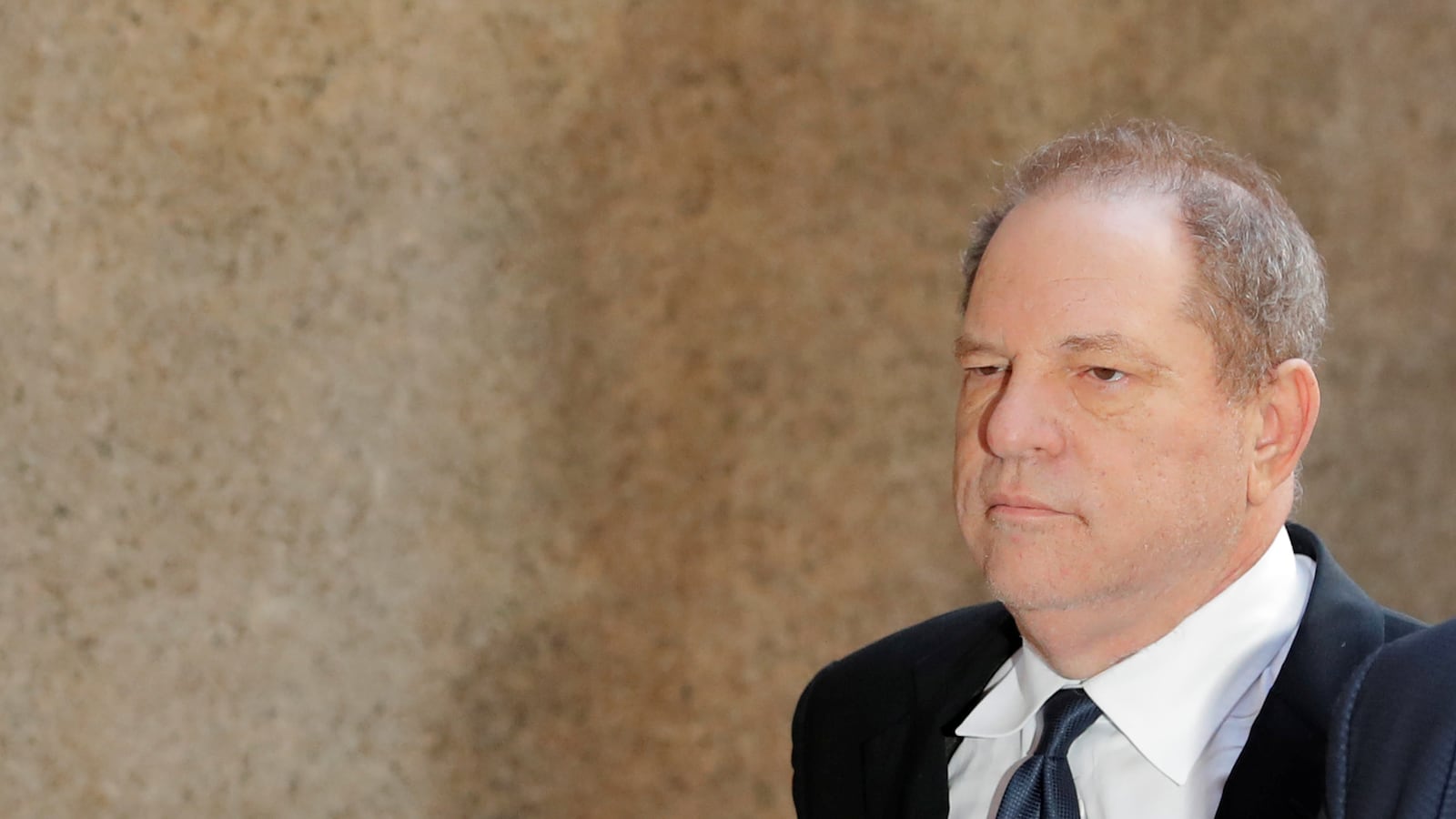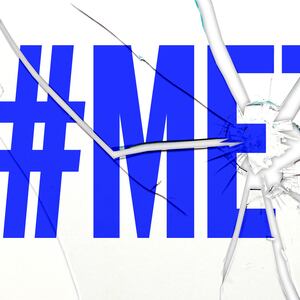A judge dismissed one of the sexual-assault charges against Harvey Weinstein on Thursday after prosecutors determined that a New York City police detective withheld evidence related to one of the alleged victims.
Lucia Evans accused Weinstein of forcing her to engage in oral sex at his downtown Manhattan office in 2004. Prosecutors charged Weinstein with one count of criminal sexual act in the first degree for the alleged assault.
Weinstein’s attorney, Benjamin Brafman, filed a motion accusing prosecutors of neglecting to tell a grand jury that a witness claimed Evans told her she consented to the sex act to get a movie role. In court, Brafman argued that Evans subsequently perjured herself when she told the grand jury the sex act was not consensual.
“This is not about suggesting that a woman who comes forward should not be believed,” Brafman said in a press conference following the hearing. “This is about a witness who came forward and committed perjury before a grand jury.”
Brafman told the court that he planned to file additional motions to have the remaining five charges dismissed.
NYPD Detective Nicholas DiGaudio interviewed the witness, but the D.A.’s office said in a September 12 letter to Brafman that DiGaudio did not report the exculpatory evidence before the office presented its case to the grand jury. The letter was unsealed Thursday and multiple other documents related to the case, including a response from Brafman, remain under seal, officials said.
“It looks like the police officer was coaching one of the witnesses to change her story or downplay the story,” a senior law enforcement official told The Daily Beast. “Having a detective coach a witness and then withhold information is pretty unprecedented in a case like this.”
DiGaudio has been removed from the case and his actions are under review, the official said, adding that he could “possibly” face criminal charges, but prosecutors are not focused on that right now, the official said.
The NYPD said Thursday that it has opened an internal investigation into the allegations against DiGaudio.
The detective’s involvement in the case was largely limited to Evans, and not the other two victims, the official said.
The witness told prosecutors that in the summer of 2004, Evans had relayed to her that she had gone to Weinstein’s office, where he said he would arrange a movie role in exchange for oral sex. According to the witness, Evans said she agreed.
“That’s not forcible compulsion and that basically negates her testimony,” the official said.
The witness also told prosecutors that she and Evans met Weinstein in a bar that summer where Weinstein allegedly offered to give both women cash in exchange for exposing their breasts to him. While the witness said she declined, she did not see Evans do so, and that later that evening Evans allegedly said she had shown her breasts to Weinstein.
“Flash[ing] their breasts also differs from what prosecutors were told,” the official said.
Evans denied the witness’ account, according to the D.A.’s letter, saying she was never asked to expose her breasts to Weinstein, that she had never walked home with the witness (she claimed to have taken a taxi), and that she never consented to sex with Weinstein.
“A lot of the statements that were made to the detective were not told to prosecutors and so were not part of the grand jury testimony and in some cases contradicted what prosecutors were told,” the official said. “Had it been known ahead of time there would have been a way to deal with, but now that you have charges,” prosecutors hands are tied.
“Having one count in the indictment that is so fraught with problems, weakens the entire case,” the official added, noting it was better to have that charge removed.
Assistant Defense Attorney Joan Illuzzi said in court that that the disclosures do not affect the “strength of the remaining case and the remaining counts in the indictment, all five of them, including predatory sexual assault.”
Talking with reporters on Thursday, NYPD Commissioner James O'Neill said that police continue to work with prosecutors on the case. “The overall criminal case against Mr. Weinstein remains strong. The evidence is compelling. There are five remaining counts in the indictment, including predatory sexual assault.”
The decision to drop the charge related to Evans comes a year and a day after Evans went public with her account of being assaulted by Weinstein in The New Yorker. Evans was an aspiring actress in 2004 when she went to see Weinstein at the offices of the film-distribution company he co-founded, Miramax, in Manhattan. There, she alleges, Weinstein “forced me to perform oral sex on him,” she told The New Yorker.
“I said, over and over, ‘I don’t want to do this, stop, don’t,’” Evans said. “I tried to get away, but maybe I didn’t try hard enough.”
The witness told the NYPD that she had been contacted by a fact-checker at The New Yorker, according to the D.A.’s letter, and she told them only that “something inappropriate happened” between Weinstein and Evans. The witness said she did not include specifics.
“We stand by our reporting and fact-checking process, which was assiduous and thorough,” a spokesperson for The New Yorker said in a statement. “Any assertion by lawyers for Harvey Weinstein that The New Yorker had information that contradicted Lucia Evans’s account is patently incorrect.”
In 2018, Weinstein was charged with six counts for alleged crimes against Evans and two other women, including rape in the first degree, rape in the third degree, and criminal sexual act. Weinstein pleaded not guilty during his arraignment and denies all allegations of rape and sexual assault.
Weinstein turned himself in to the New York Police Department and Manhattan District Attorney’s Office in late May, but the longtime film producer soon was released from jail on $1 million bail.
Weinstein faces decades behind bars if convicted, with the first-degree rape charge carrying a maximum of 25 years in prison.
The judge said he will hear additional motions to dismiss the charges against Weinstein on December 20.
The case against Weinstein was brought three years after Manhattan District Attorney Cy Vance declined to charge him with sexual assault after Ambra Battilana Gutierrez told police he groped her. Vance said there was insufficient evidence to prosecute Weinstein, though it was later revealed that Gutierrez and the NYPD recorded Weinstein apologizing for touching her.








